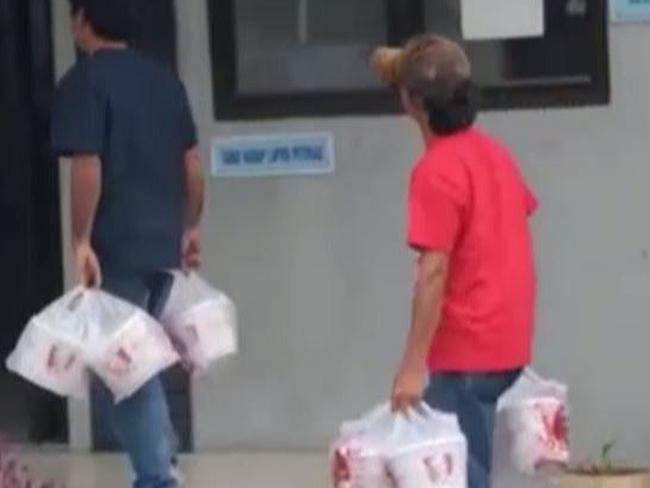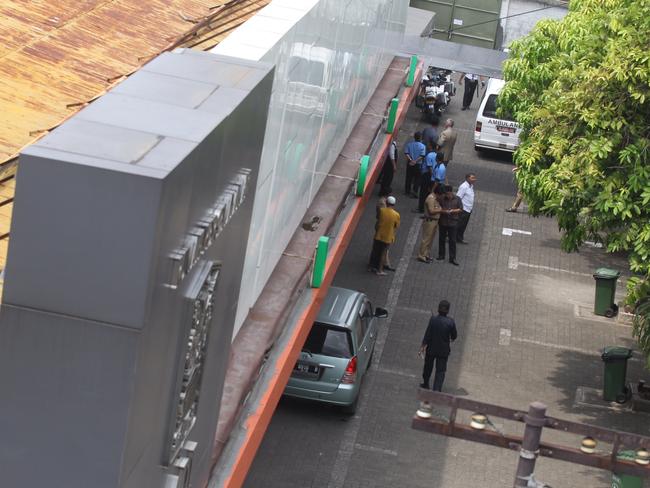Senate will grill Australian Federal Police over handling of the Bali Nine case
A “CHEAP political shot” has got Julie Bishop all fired up. So what exactly did Labor say about the Bali Nine situation?
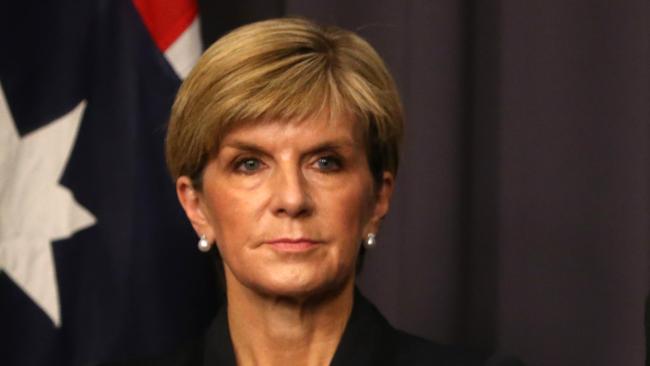
FOREIGN Minister Julie Bishop has delivered an angry response to suggestions that a Coalition directive to the Australian Federal Police had dumped all mention of the death penalty.
In the wake of the execution of two Australians in Indonesia this week, the AFP is facing a fresh backlash over its involvement in the arrest of the members of the Bali Nine.
Today it emerged that the Coalition had changed a government AFP directive, which used to ask the agency to consider the government’s “longstanding opposition” to the death penalty when deciding what information it shared with foreign agencies.
Opposition justice spokesman David Feeney last night wrote to Justice Minister Michael Keenan questioning him on why a new directive issued by the Coalition last year no longer contained a mention of the government’s opposition to the death penalty.
Ms Bishop became angry when asked about the change during a press conference and said that the “directive” was different to AFP “guidelines”.
She said the guidelines, which dictate how the agency operates, had not changed since Labor was in government and were still adhered to. She described the controversy around the directive as a “cheap political shot” from Labor just 24 hours after the execution of the Bail Nine ringleaders.
In contrast, the government directive to the AFP outlines priorities and expectations for the agency.
Changes to the directive, which asked the agency to consider the government’s opposition to the death penalty when performing its international liaison functions, were part of a package of measures passed in 2010. This was in response to the 2006 arrest of the Bali Nine in Indonesia.

Ms Bishop did not comment on why the Coalition’s directive was changed, only that the AFP guidelines were still in place and had not been changed.
But she did indicate that government was not supportive of a further review of the AFP’s involvement in the arrest of the Bali Nine, saying “this matter has already been reviewed, I think it’s time we focus on supporting the family”.
Yesterday she said that the AFP’s involvement in the arrest of the Bali Nine was reviewed a number of years ago and changes were made.
The AFP did not respond to queries yesterday about what those changes were.
The agency follows its own guidelines which empower it to share information with foreign nations even if this would lead to Australians being sentenced to death, provided there is prior ministerial approval.
The Human Rights Law Centre told news.com.au that if the Bali Nine case happened again tomorrow, no law or guideline would prevent the AFP in sharing information in exactly the same way.
“Recent changes to the guidelines only require ministerial approval of information sharing if the person concerned is arrested,” the centre’s director of advocacy Emily Howie said.
She said no law or guideline would prevent the AFP from sharing information that could lead to Australian being sentenced to death overseas. This is in contrast to Australia’s extradition laws which prevent citizens being handed over to countries if it could lead to them being executed.
“The AFP Act doesn’t contain the same safeguards. That inconsistency must be addressed urgently,” Ms Howie said.
The AFP will face a Senate hearing over the role it played in the arrests of the Bali Nine, amid fresh calls for answers about the events that ultimately led to the executions of Andrew Chan and Myuran Sukumaran this week.
The AFP, which shared information with Indonesian counterparts which ultimately led to their capture there, has faced a public backlash over its role.
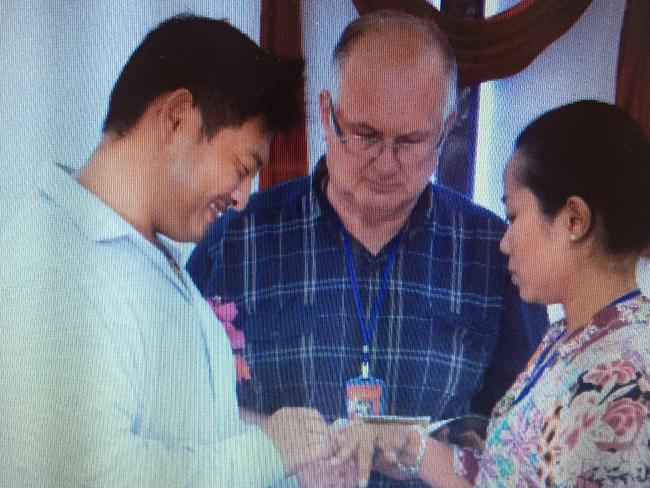

Mr Feeney said the government must ensure Australians were not being put at risk of being subjected to the death penalty, following the executions of Chan and Sukumaran.
He wanted clarity over whether the omission to the ministerial direction changes the AFP’s obligations.
“Can we still have confidence that there are protocols binding the AFP going forward?” he said.
But Mr Keenan insists there has been no change to guidelines that govern the way the AFP handles death penalty cases.
He said the way police deal with information with countries that impose the death penalty is governed by “very strict guidelines”. However he made no mention of the new ministerial directions. “It is vitally important that we continue to co-operate with our law enforcement partners including Indonesia throughout the region ... because it keeps Australia safe,” he told reporters in Launceston on Thursday.
Meanwhile Agriculture Minister Barnaby Joyce has called for a national debate on the death penalty, and said some members of the Australian public support capital punishment.
“I do get approached by people saying, `Well that might be your view, Barnaby, that you don’t support the death penalty, but it’s not our view’.”, he told ABC TV.
RELATED: Bob Carr slams decision to withdraw ambassador to Indonesia
RELATED: Why the government is holding back
RELATED: Should we cut foreign aid to Indonesia?
In 2006 the Federal Court cleared the AFP of wrongdoing in tipping off Indonesian authorities about the Bali Nine drug smugglers. The Senate will re-examine the circumstances of the arrest and AFP’s involvement next month.
The Bali Nine was arrested in Indonesia after a family friend of one of the Bali Nine contacted the AFP and asked that the group be stopped in Australia before boarding a flight to Indonesia. Instead the AFP alerted its Indonesian counterparts and the individuals were arrested overseas, which meant they would face the death penalty if convicted.
The barrister who tipped off the AFP continues to suggest that the AFP has “blood on its hands”.
The AFP has said it had no evidence or lawful reason to detain, much less arrest or charge, any member of the Bali Nine before their departure from Australia.
Indonesia has declared the executions of Chan, Sukumaran and six others to be “perfect” and a “success”. A local Catholic priest Charlie Burrows described how the men had been executed in a macabre new way, strapped by cable ties with their arms outstretched on what were effectively crucifixes.
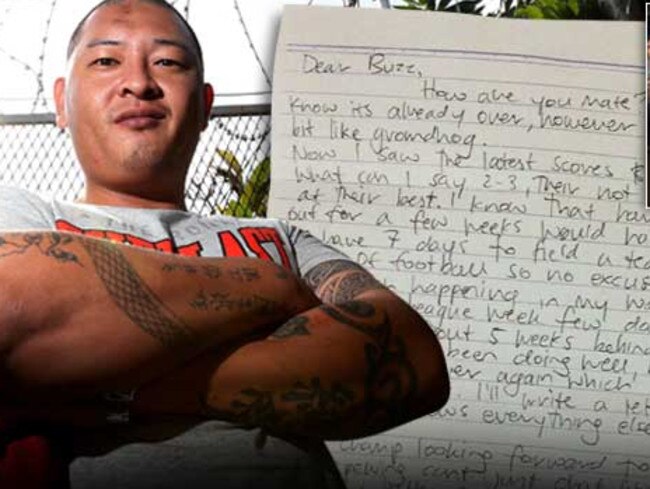
South Australian independent Nick Xenophon said he would raise the issue in hearings.
The AFP on Wednesday said it would have more to say on the matter, but was waiting out of respect for the families of Chan, 31, and Sukumaran, 34, who were shot by firing squad in Indonesia on Wednesday morning.
“AFP Commissioner Andrew Colvin has publicly stated the AFP will make comment in relation to this matter,” the AFP told AAP in a statement.
“Now is not the time to discuss this matter out of respect for the grieving families.”
Mr Colvin, who was working under former commissioner Mick Keelty when the Bali Nine were arrested in Indonesia in 2005, last month said the AFP would not bear responsibility if Chan and Sukumaran, convicted for their roles in a plot to import 8.3kg of heroin from Bali to Australia, were executed.
“Put simply, do we have blood on our hands? No,” Mr Colvin said.
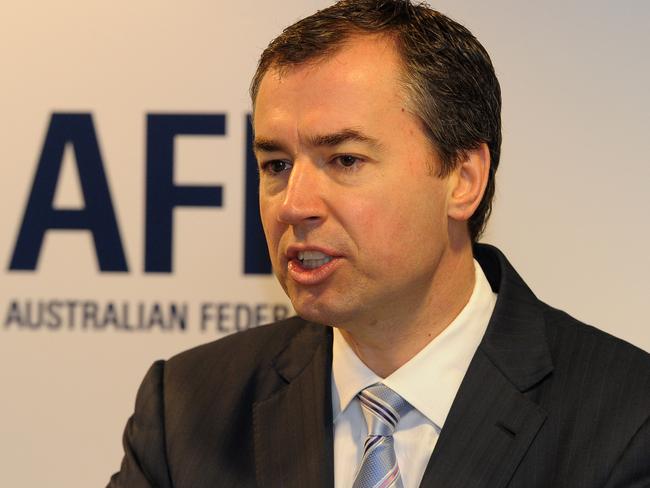
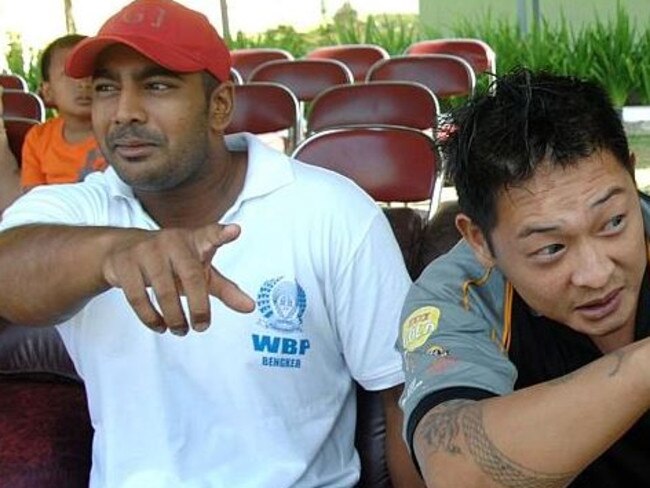
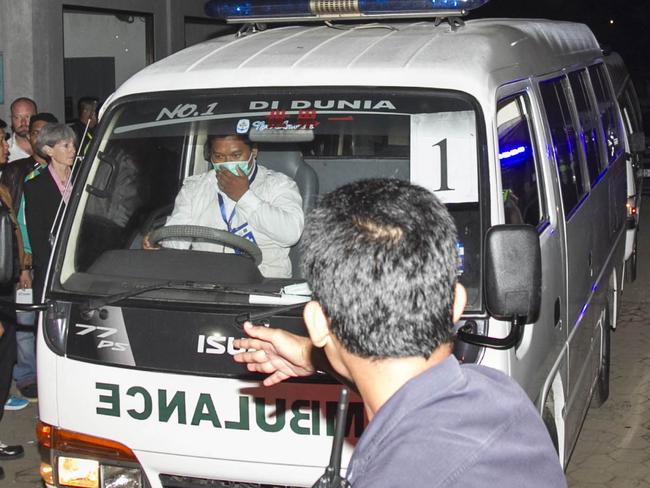
But Brisbane-based lawyer Bob Myers, a friend of the father of Bali Nine member Scott Rush, on Wednesday insisted the AFP must bear responsibility.
“This is a black day for the AFP, a day they deliberately exposed nine Australians to the death penalty,” he said.
Mr Myers had reached out to the AFP in a bid to stop Rush leaving Australia for Bali.
Instead, the AFP sent a letter to counterparts in Indonesia on the same day Rush flew to Bali, providing details about the heroin smuggling plot, and advising Indonesian authorities to “take what action they deem appropriate”.
Foreign Minister Julie Bishop said the involvement of the AFP had already been reviewed and the government was “satisfied that the changes that are in place were appropriate”.
“I don’t believe today is the time to look for recriminations,” Ms Bishop said.
Senator Xenophon, who has also written to federal parliament’s joint standing committee on foreign affairs to ask that the matter be examined, said it was legitimate the AFP face further scrutiny. “This is not about recriminations, it’s about making sure this never, ever happens again,” Senator Xenophon said.
Federal MP Clive Palmer said he planned to introduce a private member’s bill that would make it an offence for any public official to disclose information that might lead to a person facing the death penalty.
Retired diplomat Bruce Haigh said the AFP’s relationship with counterparts in Indonesia should also be thoroughly investigated by an independent body.
